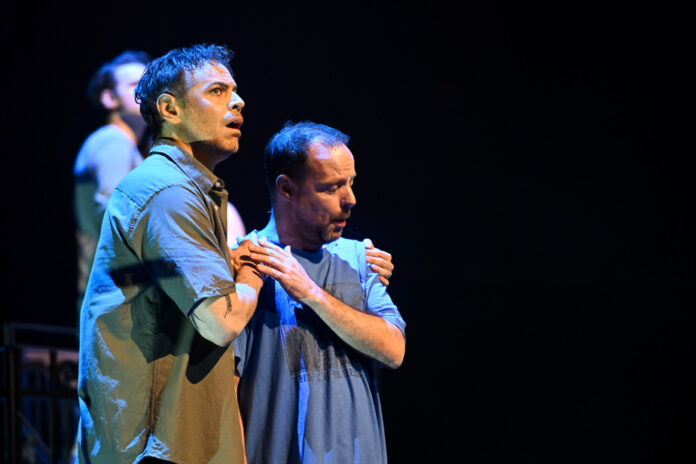The new opera version of Michel Tremblay’s play Messe solennelle pour une plein lune d’été was a triumph at the Palais Montcalm on Saturday afternoon in the presence of the famous novelist and playwright.
Could we have imagined hearing phrases like “Ch’tannée to pick up your shit” or “On se crosse dans ce temps-là” sung at the opera? The last Quebec lyrical creations we attended (Yourcenar – Une île de passions, La beauté du monde, L’orangeraie…) were written in international French, which is obviously out of the question when it comes to the creator of the theatre. in joual, whose poetry seems tenfold in opera.
Composer Christian Thomas has managed to create a libretto whose setting seems self-evident. And this from the Introit, an impressive choral tableau where the 11 characters discuss the weather (“My God, what a beautiful weather there is!”), seemingly innocuous remarks, but which hide, as often with Tremblay, a malaise deep. Here, it is the music, tormented, which allows us to grasp the Tremblaysian irony.
On wrought iron balconies skillfully arranged by scenographer Jean Bard on the stage facing Les Violons du Roy, expertly led by conductor Thomas Le Duc-Moreau, the singers, led by director Alain Zouvi, each have their own moment in the 14 parts of the mass, a ceremony rearranged in a very personal way by Tremblay (the order is changed and some parts are never united in a real mass).
But these choices are not trivial. The Kyrie (a prayer of supplication) is for example the occasion for these discouraged characters to implore for mercy on them. The Exultate (“Exult”) then sees the young couple played by soprano Magali Simard-Galdès and tenor Jean-Michel Richer indulge in their love affairs.
Dies iræ (“Day of Wrath”) shows Mireille (soprano Chantal Parent) letting the bad guy out in front of her crippled father (bass Alain Coulombe), whom she must feed, wash, and more…
In the Recordare (“Remember”), it is Rose (the contralto Priscilla-Ann Tremblay) who pleasantly recalls the childhood of her little Mathieu (the baritone Patrice Côté), whom she no longer understands since he came out as homosexual.
There are also Jeannine and Louise (mezzo-soprano Ariane Girard and soprano Jessica Latouche), two lesbians whose love wavers, but also Yvon and Gérard (tenor Dominic Lorange and baritone Dominique Côté), two gay men whose one is eaten away by disease. And the Widow (soprano Lyne Fortin), alone, who misses her recently deceased husband.
The set may at first seem disjointed, but we quickly realize that these characters (some of whom are sometimes doubled by another, foreign but so close) share much more than watching the full moon on their balcony . Something like a common humanity.
On the vocal level, Lyne Fortin is naturally above the fray, but Chantal Parent and Priscilla-Ann Tremblay also impress with their ample voices and their dramatic investment, even if the second tends to have a vocal line that is a bit too static .
Mainly active in musicals, the tenor Dominic Lorange is less at ease in the lyrical style, even if he is distinguished by the credibility of his playing, a quality which was less evident in the Girard-Latouche couple, whose was struggling to feel the panic in the Lux æterna.
Many spectators had the motton in the throat at the end of this uncompromising work. Perhaps that is what great works are all about: revealing ourselves to ourselves, in all our complexity. And our beauty.
There are two performances left, July 31 and August 2 (7:30 p.m.).















